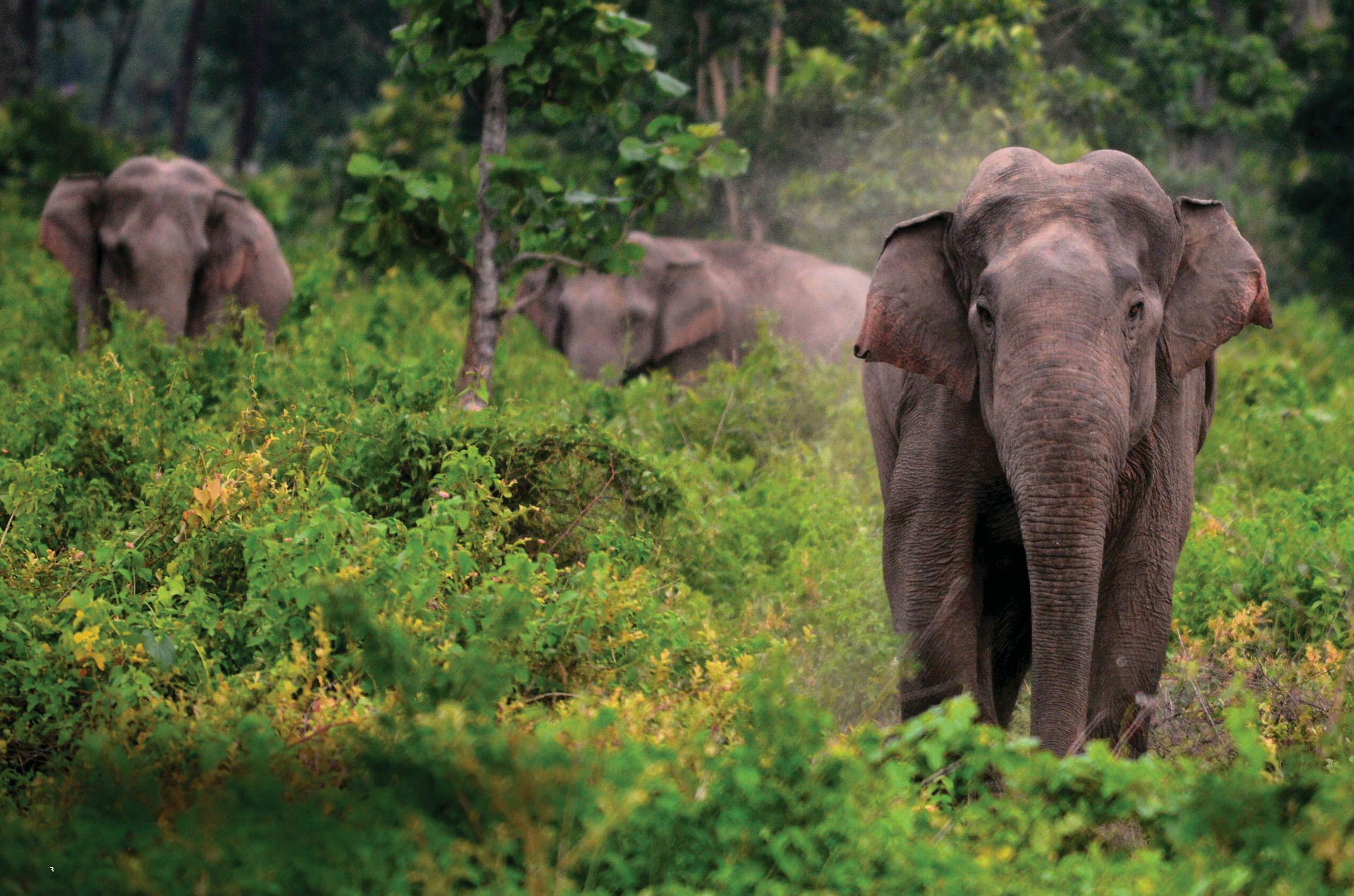
ELEPHANTS ARE valued more in India than all other animals put together," says Anish Andheria, CEO of Wildlife Conservation Trust. "Lord Ganesha, the most worshipped and revered Hindu God, is half-human and half-elephant."
Sadly, revered status isn't keeping these animals safe. Elephants were declared the National Heritage Animal of India in 2010 and granted Schedule 1 status - the highest protection level in the country, on a par with tigers. But elephants and people are frequently coming into contact, leading to horrific flashpoints of violence in which both are losing their lives. "Around 1,400 human and 300 elephant casualties occurred in India due to human-elephant conflict between 2018 and 2020," Andheria explains, the figure not including captive elephants.
Asian elephants (Elephas maximus) are listed as Endangered on the IUCN's Red List. Their numbers have declined by at least 50 per cent over the past three generations, largely due to habitat loss.
India is currently home to about 27,000 elephants, found in 17 states, including Arunachal Pradesh, Uttar Pradesh and West Bengal. While conflict between elephants and people is often associated with the African species, and more attention in India is paid to issues around tigers, leopards and other big cats, human-elephant conflict (HEC) is at crisis levels in the country.
As in Africa, the key issue is the lack of space. India recently overtook China as the most populated country in the world and is now home to 1.43 billion people, one sixth of the global population. About 65 per cent of the country's people live in rural areas. Industrial projects, such as mines and dams, along with roads and the exploitation of forests for agriculture, firewood or livestock-grazing, have also depleted natural elephant habitat.
Denne historien er fra October 2023-utgaven av BBC Wildlife.
Start din 7-dagers gratis prøveperiode på Magzter GOLD for å få tilgang til tusenvis av utvalgte premiumhistorier og 9000+ magasiner og aviser.
Allerede abonnent ? Logg på
Denne historien er fra October 2023-utgaven av BBC Wildlife.
Start din 7-dagers gratis prøveperiode på Magzter GOLD for å få tilgang til tusenvis av utvalgte premiumhistorier og 9000+ magasiner og aviser.
Allerede abonnent? Logg på

SNAP-CHAT
Justin Gilligan on giant spider crabs and holding hands with an octopus

STEPPE CHANGE
Herds of saiga have returned to Kazakhstan, but there's a fine balance to tread

TREES FOR LIFE
Community is at the heart of conservation in the tropical forests of southern Belize

WHEN DOVES CRY
Turtle doves are now the UK's fastest declining bird species, but the RSPB is on a mission to save them

SURVIVAL OF THE CUTEST
We can't help being drawn to cute creatures, but our aesthetic preferences both help and hinder conservation

LIGHT ON THE NORTH
Spectacular images of Arctic foxes, reindeer and musk oxen reveal the wild beauty and diversity of Scandinavia

ROLLING IN THE DEEP
The super-sized crustacean that lives in the deepest, darkest ocean

LET'S GET TOGETHER
Clay licks deep in the Amazon explode in a riot of colour, with macaws the stars of the show

FEMALE OF THE SPECIES
To sponge or not to sponge? That is the question for the bottlenose dolphins (Tursiops aduncus) living in Shark Bay, Western Australia.

7 nature encounters for the month ahead
WITH NATURALIST AND AUTHOR BEN HOARE